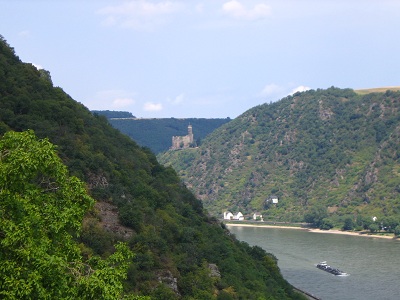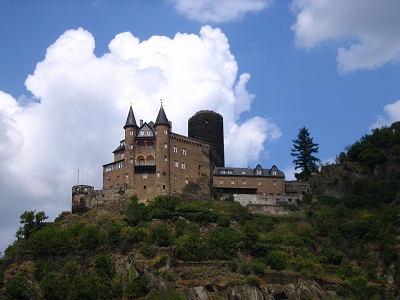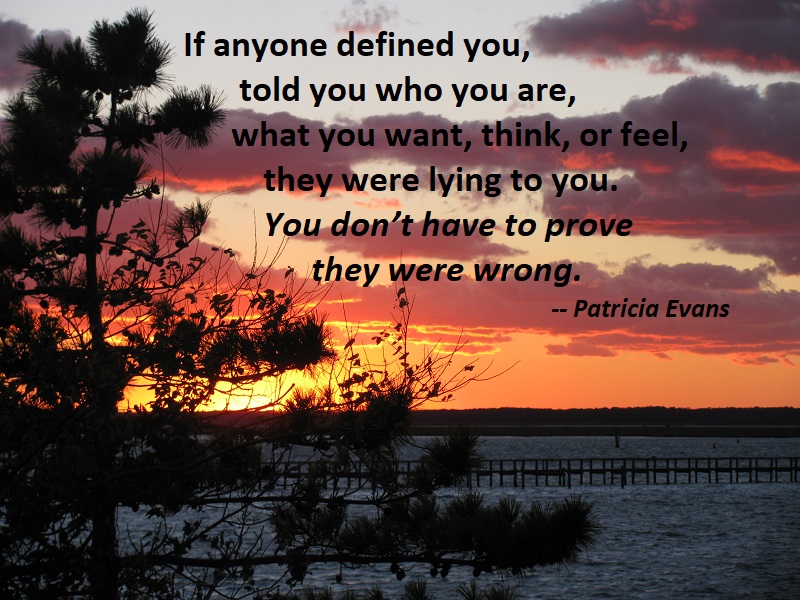
The course of the Rhine below Mayence becomes much more picturesque. The river descends rapidly and winds between hills, not high, but steep, and of beautiful forms. We saw many ruined castles standing on the edges of precipices, surrounded by black woods, high and inaccessible. This part of the Rhine, indeed, presents a singularly variegated landscape. In one spot you view rugged hills, ruined castles overlooking tremendous precipices, with the dark Rhine rushing beneath. And on the sudden turn of a promontory, flourishing vineyards and populous towns, and a meandering river with green sloping banks, occupy the scene. We travelled at the time of the vintage and heard the song of the labourers as we glided down the stream. Even I, depressed in mind, and my spirits continually agitated by gloomy feelings, even I was pleased. I lay at the bottom of the boat; and, as I gazed on the cloudless blue sky, I seemed to drink in a tranquility to which I had long been a stranger. And if these were my sensations, who can describe those of Henry? He felt as if he had been transported to fairy land and enjoyed a happiness seldom tasted by man. “I have seen,” he said, “the most beautiful scenes of my own country. I have been on the lakes of Lucerne and Uri, where the snowy mountains descend almost perpendicularly to the water, casting black and impenetrable shades which would cause a gloomy and mournful appearance, were it not for the most verdant islands that relieve the eye by their gay appearance. I have seen this lake agitated by a tempest, when the wind tore up whirlwinds of water and gave you an idea of what the water-spout must be on the great ocean — and the waves dash with fury on the base of the mountain, where the priest and his mistress were overwhelmed by an avalanche and where their dying voices are still said to be heard amid the pauses of the night wind. I have seen the mountains of La Valais and the Pays de Vaud, but this country, Victor, pleases me more than all those wonders. The mountains of Switzerland are more majestic and strange, but there is a charm in the banks of this divine river that I never before saw equalled. Look at that castle which overhangs yon precipice; and that also, on the island, almost concealed among the foliage of those lovely trees; and now that group of labourers coming from among their vines; and that village half-hid in the recesses of the mountain. Oh! surely the spirit that inhabits and guards this place has a soul more in harmony with man than those who pile the glacier or retire to the inaccessible peaks of the mountains of our own country.”

— Victor Frankenstein in Frankenstein, by Mary Shelley, p. 179-180


